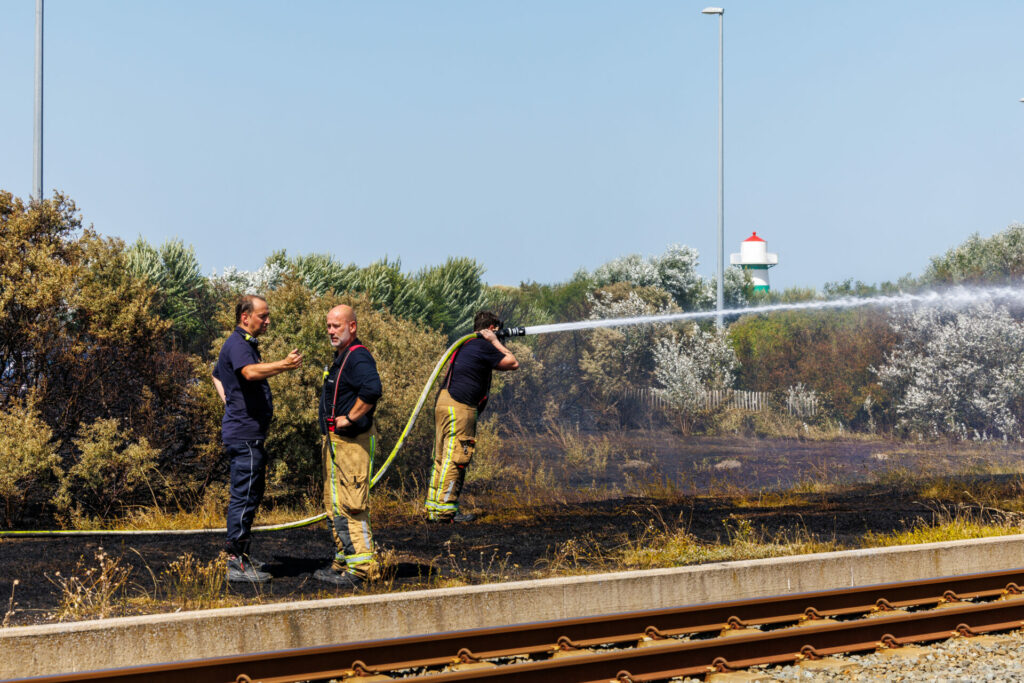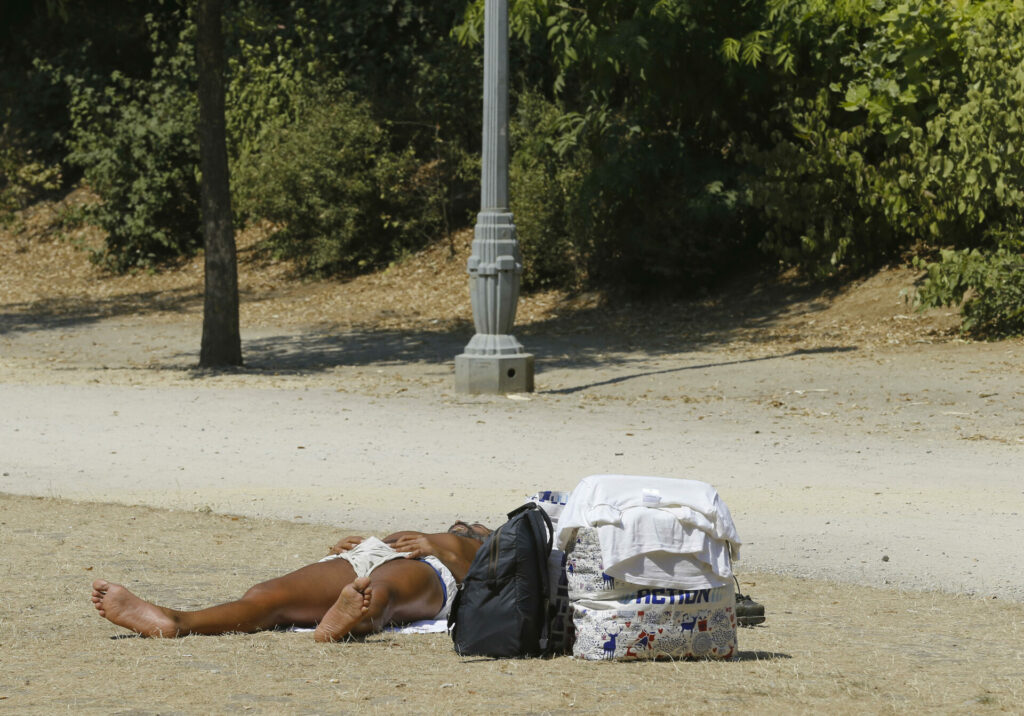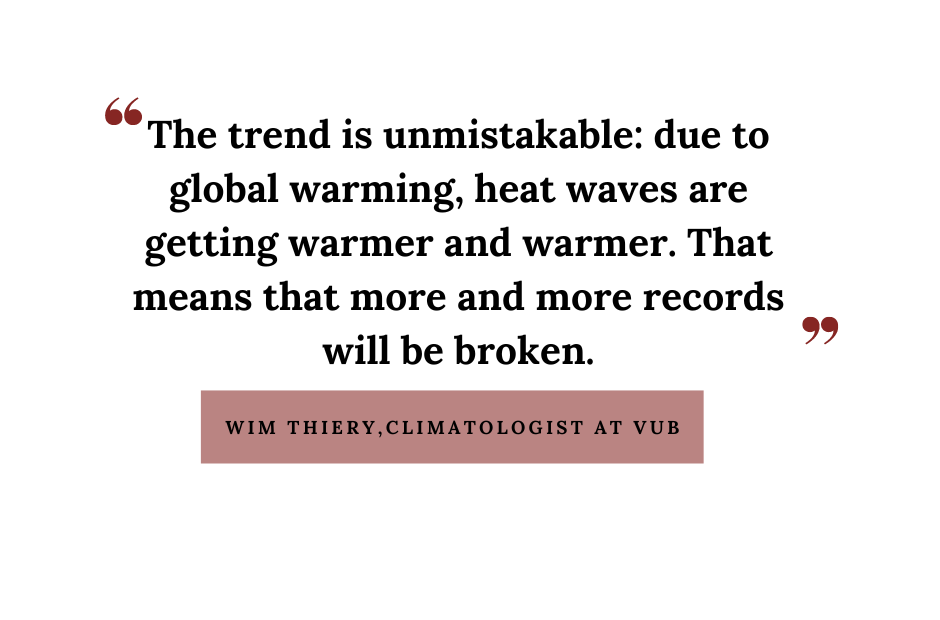Belgium saw some of the highest temperatures in its history earlier this week with parts of the country seeing the mercury top 40°C. The concern is this is just the start and future summers could see the country sweltering in even higher temperatures.
"Just as one swallow does not make spring, one day with a record temperature is not exceptional," says Frank Deboosere, VRT's weather reporter said.
However, with records tumbling in shorter time frames every few years, Deboosere sees a clear trend in recent decades: at the end of the 20th and especially the beginning of the 21st century, new heat records are set much more often.
"It is abundantly clear that global warming plays a role in this."
Related News
- Threat of toxic blue algae in Brussels canals after heatwave
- Heatwaves and global warming can cause kidney stones, nephrologists say
- Heatwave in Spain: Man filmed narrowly escaping deadly wildfire
Climatologist Rozemien De Troch from the Royal Meteorological Institute of Belgium (RMI) in Brussels also sees this.
"The average temperatures are shifting to higher temperatures, with the high temperatures also shifting along with it: both the probability of high temperatures and their intensity are increasing," she says.
Wim Thiery, a climatologist at the VUB university in Brussels agrees with both Deboosere and De Troch.
"If you look at the past years, you see that records are broken time and time again in the summer."
Thiery sees that heat waves have become increasingly frequent in recent years; they last longer and are warmer.
"While heat waves were previously exceptional, we now have to deal with them almost every year."

Credit: Belga
"In 2019, we recorded the highest temperature ever recorded in Belgium,” he adds. “Then, for the first time, 40 degrees was measured in our country. In 2020, at the beginning of August, we had the warmest week since the start of the measurements. Last year, with the floods, we saw extremes in terms of precipitation. And this summer we see very high temperatures again. Not only with us but also in the surrounding countries."
The RMI describes a heat wave as when the maximum temperatures at its weather station in the Brussels municipality of Uccle are at least 25°C for at least 5 consecutive days, reaching at least 30°C on at least three days.
De Troch says that the massive increase in heat waves is perfectly in line with what climatologists expect from climate change.
"Based on the climate models, we expect the warming trend to continue," she says. "Where we will land will depend on the measures taken to reduce greenhouse gas emissions."
"Current models vary. In the global models of the UN climate panel, it could go up to a warming of 4 degrees, by the end of this century. That is the most pessimistic scenario. Depending on the measures that are taken, this may be lower."

The fire brigade is pictured in action on the scene of fires in the dunes at the Belgian coast in De Haan, caused by the heatwave on Tuesday 19 July 2022. The beaches were evacuated. Credit: Belga
In any case, the chance of such extreme temperatures will increase, says De Troch.
"We're pretty sure of that, but it is difficult to predict exactly how hot it will be in the future in the extreme cases."
Deboosere sees the chances increasing that temperatures will reach the 50°C mark in Europe, "if you look at what is happening now in Spain and Portugal, for example. If it's not this year, it's next year or the year after that they'll hit 50 degrees there."
The highest temperature recorded on our continent dates back to last summer on August 11. 48.8°C was measured on the Italian island of Sicily. The previous record, of 48°C, dated from July 1977 in the Greek capital Athens.
Thiery notes that — as far as the climate is concerned — it is irrelevant whether it is 38 or 39°C: "The trend is unmistakable: due to global warming, heat waves are getting warmer and warmer. That means that more and more records will be broken."
Thiery draws a comparison with the Olympic Games: "In the early years it was easy to break records because the games were only just getting started. Over time, it became increasingly difficult to set the records more and more."
"The same used to be true for the climate: the longer you measure the temperature, the smaller the chance that you can still record new records. But — as in the heyday of doping — we now see that more and more records are being broken in terms of temperature. Because we now see a climate on steroids, as a result of which the records are being broken more and more often and by ever larger margins."


